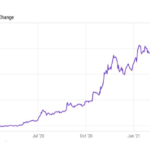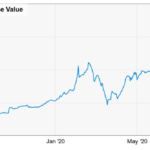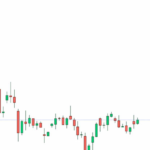When determining how many shares of a specific stock to purchase, there are a few things to take into account. Consider diversification and whether you can purchase fractional shares of stock in addition to the amount of capital you have available.
In light of the foregoing, the following quick guide can assist you in selecting the ideal quantity of shares to purchase.
How Many Shares of a Stock Should I Buy?

The number of shares of a stock that you should buy depends on several factors such as your investment goals, risk tolerance, and financial situation.
Here are a few things you should consider when deciding how many shares of a stock to buy:
- Risk tolerance: Determine how much risk you are willing to take on. If you are risk-averse, you may want to buy fewer shares, while if you are more comfortable with risk, you may be willing to buy more shares.
- Investment goals: Consider why you are investing in the stock in the first place. Are you looking to make a short-term gain or a long-term investment? If you are looking for a long-term investment, you may be able to buy more shares.
- Financial situation: Consider your current financial situation and how much money you can afford to invest in the stock. It’s important to invest within your means and not put yourself in a precarious financial situation.
- Stock price: Consider the price of the stock and how much you can afford to buy. If the stock price is high, you may not be able to buy as many shares as you would like.
Overall, it’s important to do your research and consult with a financial advisor before making any investment decisions. They can help you determine the right number of shares to buy based on your individual circumstances.
How Many Shares Can You Buy Based on Price?

The number of shares you can buy based on the price of a stock will depend on the amount of money you are willing to invest. Here’s a simple formula to calculate the number of shares you can buy based on the stock price:
Number of shares = Amount to invest / Stock price
For example, if you have $5,000 to invest and the stock you are interested in buying is trading at $100 per share, you can buy:
Number of shares = $5,000 / $100 = 50 shares
However, it’s important to remember that the stock price may fluctuate, and the value of your investment may increase or decrease depending on market conditions. It’s important to do your research and make informed investment decisions based on your financial situation and investment goals.
Also Read: Is The Stock Market Going to Crash In 2023
What About Diversification?

Diversification is an important aspect of investing that aims to reduce the overall risk of a portfolio by investing in a variety of different asset classes, industries, and regions.
When it comes to buying shares of a stock, diversification can help you spread your risk across multiple companies and industries, reducing your exposure to any single company or sector.
For example, instead of investing all your money in one stock, you could invest in a portfolio of stocks across different industries and sectors, such as technology, healthcare, energy, and consumer goods. This way, if one sector or company performs poorly, it may be offset by the performance of other stocks in your portfolio.
It’s important to note that diversification doesn’t guarantee profits or protect against losses, but it can help mitigate risk and potentially improve the overall performance of your portfolio over the long term.
One way to diversify your portfolio is by investing in exchange-traded funds (ETFs) or mutual funds, which offer exposure to a diversified range of stocks or other assets. Alternatively, you could create your own diversified portfolio of individual stocks based on your investment goals and risk tolerance.
As with any investment strategy, it’s important to do your research and consult with a financial advisor before making any investment decisions. They can help you determine the right diversification strategy based on your individual circumstances.
Check More Stocks Information in BtcAdv Blog!
Is It Worth Buying One Share of Stock?

Buying one share of stock can be worth it or not depending on your investment goals, financial situation, and the particular stock you are interested in.
Here are a few factors to consider when deciding whether to buy one share of stock:
- Investment goals: Are you investing for the short-term or the long-term? If you’re looking for a long-term investment, buying one share of stock may not be sufficient to achieve your investment goals.
- Fees: Depending on the brokerage you use, you may need to pay fees such as trading fees, account fees, and other charges. These fees may eat into your returns, particularly if you’re only buying one share of stock.
- Dividends: If the stock pays dividends, the value of your investment may increase over time. However, the amount of dividends you’ll receive from one share of stock may not be significant enough to justify the investment.
- Diversification: If you’re trying to build a diversified portfolio, one share of stock may not be enough to achieve that goal.
Overall, buying one share of stock can be worth it if you’re interested in owning a small piece of a company or if you’re just starting out and want to dip your toes into investing. However, if you’re serious about investing, it’s generally recommended to invest in a diversified portfolio of stocks and other assets.
Is It Possible to Buy Less Than One Share of Stock?

Yes, it is possible to buy less than one share of stock. In the past, buying fractional shares of stock was not possible or was limited to certain brokerage platforms, but with the rise of commission-free trading and new financial technologies, it has become more common and accessible.
Fractional shares allow investors to buy a portion of a share of a stock, which can be helpful for those who want to invest smaller amounts of money or cannot afford to buy a whole share. Fractional shares are often offered through brokerage platforms or robo-advisors that allow investors to invest in stocks and exchange-traded funds (ETFs) with low minimums or no minimums.
Some brokers and investing apps that offer fractional share investing include Robinhood, Acorns, SoFi, and M1 Finance. It’s important to note that some brokers may charge fees or have minimum investment requirements for fractional shares, so it’s important to do your research and compare different options before making a decision.
Fractional shares may also be subject to price fluctuations, so investors should be aware of the risks involved and do their due diligence before investing in any stock, whether through fractional or whole shares.
What Are the Best Investments for Monthly Income?
There are a variety of investment options available for generating monthly income, depending on your risk tolerance, investment goals, and financial situation. Here are some of the best investments for generating monthly income:
- Dividend-paying stocks: Dividend-paying stocks can provide a steady stream of income. Companies that pay dividends typically distribute a portion of their earnings to shareholders on a regular basis, often quarterly. You can invest in individual stocks or diversified portfolios of dividend-paying stocks through mutual funds or exchange-traded funds (ETFs).
- Bonds: Bonds are debt securities that pay interest on a regular basis. They can provide a relatively stable source of income, although the amount of income will depend on interest rates and other factors. You can invest in individual bonds or diversified portfolios of bonds through mutual funds or ETFs.
- Real estate investment trusts (REITs): REITs are companies that own and manage income-producing real estate properties, such as apartment buildings, office buildings, and shopping centers. They are required by law to distribute at least 90% of their taxable income to shareholders as dividends. You can invest in REITs through mutual funds or ETFs.
- Peer-to-peer (P2P) lending: P2P lending platforms allow investors to lend money directly to borrowers, earning interest on the loans. Returns on P2P lending can be higher than other fixed-income investments, but there is also higher risk involved.
- Annuities: Annuities are insurance products that provide a guaranteed income stream for a specified period or for the rest of your life. They can provide a steady source of income, but may also come with high fees and restrictions on accessing your money.
It’s important to note that each investment option comes with its own set of risks and potential rewards, and it’s important to do your research and consult with a financial advisor before making any investment decisions. Additionally, consider your investment goals, time horizon, and risk tolerance before investing in any specific type of investment.

Is It Worth Investing in One Share of Stock? the Bottom Line
Whether it’s worth investing in one share of stock depends on your individual circumstances and investment goals. Here are some key takeaways to consider:
- One share of stock can be a good starting point for novice investors who are just starting to learn about investing and want to gain some experience with the stock market.
- If you have limited funds, investing in one share of stock may be an affordable way to get started in the market.
- However, if you’re looking to build a diversified portfolio, one share of stock may not be enough to achieve this goal.
- It’s important to remember that investing in the stock market comes with risk, and it’s possible to lose money. You should be prepared to hold onto the investment for the long-term and understand that there may be fluctuations in the stock price over time.
- Before investing in any stock, it’s important to do your research and understand the company’s financials, growth potential, and market outlook.
- If you’re unsure about investing in one share of stock, it may be helpful to consult with a financial advisor who can provide personalized guidance based on your individual situation.
Overall, investing in one share of stock can be a good starting point for novice investors, but it’s important to consider your individual circumstances and investment goals before making any investment decisions.











